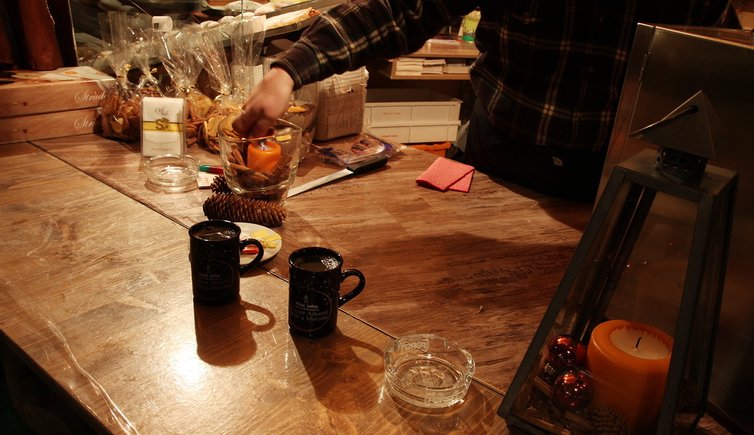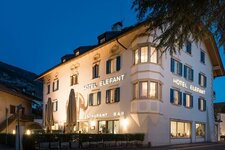Essential elements of the Christmas markets are hot beverages which warm from the inside: The leading one is mulled wine
Mulled wine warms body and soul and lifts the mood, it is soothingly pleasant and smells of cinnamon and cloves. It's perfect for the cold season! The South Tyrolean Wine Road is ideal for this beverage, as wine is produced in abundance. But what exactly is mulled wine, called "Glühwein" in German and "vin brulè" in Italian language? Actually its story back to antiquity. The Conditum Paradoxum was an old Roman spiced wine made of wine, honey, pepper and mastic gum, probably bay leaves, saffron, roasted stones of dates and dates.
A more simple variant were the pepper wines of those days. The Hypocras of the Middle Ages has already been cousin of today's mulled wine. It has been sweetened with honey or sugar and cinnamon, cloves and orange blossoms, often also ginger, cardamom and rose water or marjoram, nutmeg and pepper, but is drunk cold. Today the traditional recipe for mulled wine (min. alcohol concentration: 7%) is composed as follows: Red or white wine is sweetened with sugar, than cinnamon, clove, lemon peel and star anise are added. This mixture is heated, but by no means over 80 degrees C, as alcohol evaporates at 83 degrees C, spices change their taste and the resulting degradation product of sugar is considered to be carcinogenic.
Of course a low quality wine makes no real good mulled wine. You should rather use a high quality wine, spice it and sweet it only little. As an alternative, at every Christmas Market you can find alcohol-free hot apple juice which is also characterised by cinnamon and cloves. Further hot (alcoholic) winter beverages are grog - made with water and rum - and hot punch.































